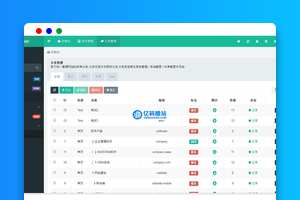生成器委托
简单地翻译官方文档的描述:
利用 yield from 可以方便我们编写比较清晰生成器嵌套,而代码嵌套调用是编写复杂系统所必需的。
上例子:
<?php
function echoTimes($msg, $max) {
for ($i = 1; $i <= $max; ++$i) {
echo "$msg iteration $i\n";
yield;
}
}
function task() {
yield from echoTimes('foo', 10); // print foo ten times
echo "---\n";
yield from echoTimes('bar', 5); // print bar five times
}
foreach (task() as $item) {
;
}
以上将输出:
foo iteration 1 foo iteration 2 foo iteration 3 foo iteration 4 foo iteration 5 foo iteration 6 foo iteration 7 foo iteration 8 foo iteration 9 foo iteration 10 --- bar iteration 1 bar iteration 2 bar iteration 3 bar iteration 4 bar iteration 5
自然,内部生成器也可以接受它的父生成器发送的信息或者异常,因为 yield from 为父子生成器建立一个双向的通道。不多说,上例子:
<?php
function echoMsg($msg) {
while (true) {
$i = yield;
if($i === null){
break;
}
if(!is_numeric($i)){
throw new Exception("Hoo! must give me a number");
}
echo "$msg iteration $i\n";
}
}
function task2() {
yield from echoMsg('foo');
echo "---\n";
yield from echoMsg('bar');
}
$gen = task2();
foreach (range(1,10) as $num) {
$gen->send($num);
}
$gen->send(null);
foreach (range(1,5) as $num) {
$gen->send($num);
}
//$gen->send("hello world"); //try it ,gay
输出和上个例子是一样的。
生成器返回值
如果生成器被迭代完成,或者运行到 return 关键字,是会给这个生成器返回值的。
可以有两种方法获取这个返回值:
- 使用 $ret = Generator::getReturn() 方法。
- 使用 $ret = yield from Generator() 表达式。
上例子:
<?php
function echoTimes($msg, $max) {
for ($i = 1; $i <= $max; ++$i) {
echo "$msg iteration $i\n";
yield;
}
return "$msg the end value : $i\n";
}
function task() {
$end = yield from echoTimes('foo', 10);
echo $end;
$gen = echoTimes('bar', 5);
yield from $gen;
echo $gen->getReturn();
}
foreach (task() as $item) {
;
}
输出结果就不贴了,想必大家都猜到。
可以看到 yield from 和 return 结合使得 yield 的写法更像平时我们写的同步模式的代码了,毕竟,这就是 PHP 出生成器特性的原因之一呀。
一个非阻塞的web服务器
时间回到2015年,鸟哥博客上转载的一篇《 在PHP中使用协程实现多任务调度》。文章介绍了PHP5 的迭代生成器,协程,并实现了一个简单的非阻塞 web 服务器。(链接见文末引用)
现在我们利用 PHP7 中的这两个新特性重写这个 web 服务器,只需要 100 多行代码。
代码如下:
<?php
class CoSocket
{
protected $masterCoSocket = null;
public $socket;
protected $handleCallback;
public $streamPoolRead = [];
public $streamPoolWrite = [];
public function __construct($socket, CoSocket $master = null)
{
$this->socket = $socket;
$this->masterCoSocket = $master ?? $this;
}
public function accept()
{
$isSelect = yield from $this->onRead();
$acceptS = null;
if ($isSelect && $as = stream_socket_accept($this->socket, 0)) {
$acceptS = new CoSocket($as, $this);
}
return $acceptS;
}
public function read($size)
{
yield from $this->onRead();
yield ($data = fread($this->socket, $size));
return $data;
}
public function write($string)
{
yield from $this->onWriter();
yield fwrite($this->socket, $string);
}
public function close()
{
unset($this->masterCoSocket->streamPoolRead[(int)$this->socket]);
unset($this->masterCoSocket->streamPoolWrite[(int)$this->socket]);
yield ($success = @fclose($this->socket));
return $success;
}
public function onRead($timeout = null)
{
$this->masterCoSocket->streamPoolRead[(int)$this->socket] = $this->socket;
$pool = $this->masterCoSocket->streamPoolRead;
$rSocks = [];
$wSocks = $eSocks = null;
foreach ($pool as $item) {
$rSocks[] = $item;
}
yield ($num = stream_select($rSocks, $wSocks, $eSocks, $timeout));
return $num;
}
public function onWriter($timeout = null)
{
$this->masterCoSocket->streamPoolWrite[(int)$this->socket] = $this->socket;
$pool = $this->masterCoSocket->streamPoolRead;
$wSocks = [];
$rSocks = $eSocks = null;
foreach ($pool as $item) {
$wSocks[] = $item;
}
yield ($num = stream_select($rSocks, $wSocks, $eSocks, $timeout));
return $num;
}
public function onRequest()
{
/** @var self $socket */
$socket = yield from $this->accept();
if (empty($socket)) {
return false;
}
$data = yield from $socket->read(8192);
$response = call_user_func($this->handleCallback, $data);
yield from $socket->write($response);
return yield from $socket->close();
}
public static function start($port, callable $callback)
{
echo "Starting server at port $port...\n";
$socket = @stream_socket_server("tcp://0.0.0.0:$port", $errNo, $errStr);
if (!$socket) throw new Exception($errStr, $errNo);
stream_set_blocking($socket, 0);
$coSocket = new self($socket);
$coSocket->handleCallback = $callback;
function gen($coSocket)
{
/** @var self $coSocket */
while (true) yield from $coSocket->onRequest();
}
foreach (gen($coSocket) as $item){};
}
}
CoSocket::start(8000, function ($data) {
$response = <<<RES
HTTP/1.1 200 OK
Content-Type: text/plain
Content-Length: 12
Connection: close
hello world!
RES;
return $response;
});
以上就是带你了解PHP7里生成器的新特性的详细内容,更多请关注亿码酷站其它相关文章!
带你了解PHP7里生成器的新特性
—–文章转载自PHP中文网如有侵权请联系ymkuzhan@126.com删除
转载请注明来源:带你了解PHP7里生成器的新特性
本文永久链接地址:https://www.ymkuzhan.com/40534.html
本文永久链接地址:https://www.ymkuzhan.com/40534.html
下载声明:
本站资源如无特殊说明默认解压密码为www.ymkuzhan.com建议使用WinRAR解压; 本站资源来源于用户分享、互换、购买以及网络收集等渠道,本站不提供任何技术服务及有偿服务,资源仅提供给大家学习研究请勿作它用。 赞助本站仅为维持服务器日常运行并非购买程序及源码费用因此不提供任何技术支持,如果你喜欢该程序,请购买正版! 版权声明:
下载本站资源学习研究的默认同意本站【版权声明】若本站提供的资源侵犯到你的权益,请提交版权证明文件至邮箱ymkuzhan#126.com(将#替换为@)站长将会在三个工作日内为您删除。 免责声明:
您好,本站所有资源(包括但不限于:源码、素材、工具、字体、图像、模板等)均为用户分享、互换、购买以及网络收集而来,并未取得原始权利人授权,因此禁止一切商用行为,仅可用于个人研究学习使用。请务必于下载后24小时内彻底删除,一切因下载人使用所引起的法律相关责任,包括但不限于:侵权,索赔,法律责任,刑事责任等相关责任,全部由下载人/使用人,全部承担。以上说明,一经发布视为您已全部阅读,理解、同意以上内容,如对以上内容持有异议,请勿下载,谢谢配合!支持正版,人人有责,如不慎对您的合法权益构成侵犯,请联系我们对相应内容进行删除,谢谢!

 成为VIP
成为VIP








